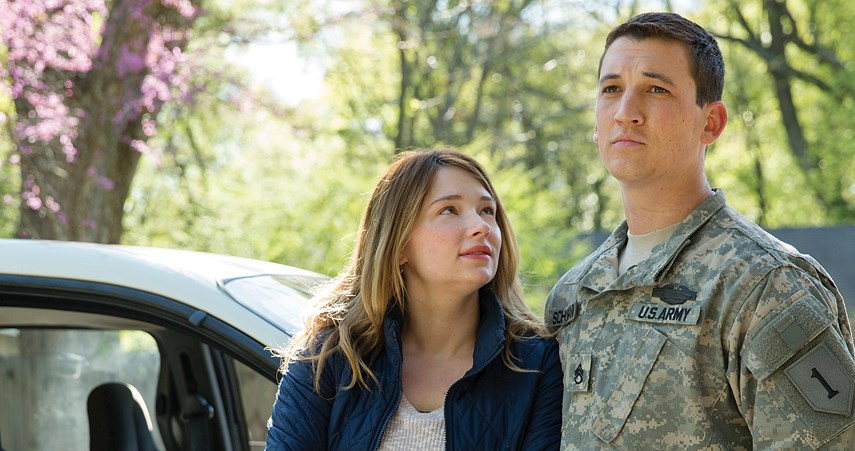Thank You For Your Service. Written and directed by Jason Hall. Starring Miles Teller. Rating: 8 (out of 10)
Thank You For Your Servicejoins Megan Leavey, Only The Brave, The Wall and Patriot’s Day, among others, in the ranks of movies in the past year designed to make Americans feel good about their military and first responders, while the approval ratings of their commander-in-chief nears an all-time low.
The film is based on the book by Pulitzer Prize-winning journalist David Finkel, who met Adam Schumann the day he was being shipped home for medical leave.
Finkel stayed with Adam and the other returning soldiers for 18 months while they recovered from physical and non-physical wounds, giving him unique access to the healing process of returning veterans.
Adam Schumann (Miles Teller) returns from three tours of Iraq a changed man, to his wife Saskia (Haley Bennett, The Girl on the Train), and two young kids. But war can’t be so easily left behind: like sand that seems to find its way everywhere, leaving traces for weeks, the memories of desert combat follow these soldiers home, spilling into every nook and cranny of their “normal” lives.
The “after-war” can be a lonely, isolating and purposeless existence to the men of the 2-16 Infantry Battalion, in sharp contrast to the camaraderie and order of wartime. Tausolo “Solo” Aeiti (Beulah Koale) is a brand-new father who can’t find a job and can’t get help for his nightmares and memory loss.
Will Waller (Joe Cole) has earned the dubious distinction of being blown up seven times. And Michael Emory (Scott Haze) takes a sniper’s bullet to the brain and must re-learn the basics of speaking and walking. “I know this don’t look like much of a life. But every morning I get up, I’m grateful. I’m grateful to be alive,” he reassures Schumann.
Bureaucracy is the villain here. Solo, in particular, is caught in the web of Veterans Affairs red tape and suicidal tendencies. Saskia only discovers how bad things are for her husband when she reads his VA questionnaire, in an emotionally ripping scene. “I can take anything you can,” she says, “Anything but quiet.”
Bennett may be the real star of the film, conveying all of the hope, stress and disappointment of a woman who must stand by a man who may never return to her.
The women are also heroes, trying to make a comfortable nest for their husbands to land back into, even when the men no longer fit.
Broken soldiers have a deep and lasting effect on their spouses and children, and the roles of Saskia and Solo’s wife (Keisha Castle-Hughes, Whale Rider, Game of Thrones) are affecting. And Amy Schumer, trading in her low-brow comedy persona for a heavy portrayal of a woman whose husband is killed just days before his scheduled leave, delivers some of the most moving lines in the film in an exchange with Teller’s character.
Jason Hall, in his directing debut, seems eminently qualified to tell the story, having a grandfather who served in the Second World War, an uncle who served in Vietnam, and a half-brother wounded in Desert Storm.
Hall previously wrote and executive produced American Sniper (directed by Clint Eastwood); Thank You For Your Service serves as a sequel of sorts to that film.
With slow and careful precision, Hall lets Schumann’s demons reveal themselves, and with little of the usual violence that usually accompanies PTSD stories.
It’s a notably un-Hollywood approach to war and battle but the emotional payoff is worth the wait.
You might think then, that for all the injustice in the film, there’s not enough outrage.
And that the soldiers’ tales, meticulously researched and chronicled though they may be, fail to be anything more than sad additions to Things We Can Do Nothing About.
This too, is a tactic, for a quiet film that lights a fire in its audience can do more than a cocksure one that merely entertains us. The stories in Thank You For Your Service are authentic enough, day-to-day maddening enough, that the onus falls to us to do something about it.



